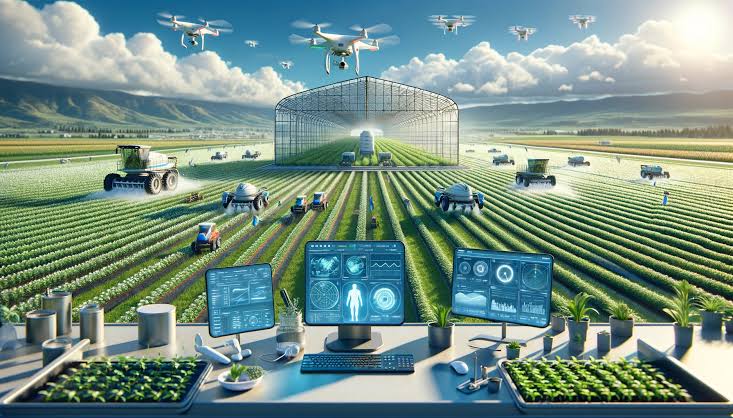
“What happens when a pepper farmer in Kaduna and a software engineer in Lagos team up? You get Nigeria’s next agricultural revolution—powered by AI.”
In the heart of Nigeria’s farmlands, a quiet transformation is underway. Farmers, long reliant on traditional methods, are now embracing artificial intelligence (AI) to enhance productivity and sustainability. This fusion of age-old agricultural practices with cutting-edge technology is not just a trend; it’s a movement reshaping the nation’s agricultural landscape.
From Hoe to Hardware: The Digital Leap in Farming
Historically, Nigerian agriculture has been characterized by manual labor and rudimentary tools. However, recent collaborations between tech innovators and farmers are introducing AI-driven solutions to age-old challenges. For instance, AI-powered applications now assist farmers in predicting weather patterns, optimizing planting schedules, and detecting crop diseases early. These tools, accessible via smartphones, are democratizing access to information, enabling even smallholder farmers to make data-driven decisions.
Why This Matters: Beyond the Farm
1. Enhancing Food Security
With Nigeria’s rapidly growing population, ensuring food security is paramount. AI-driven agriculture promises increased yields and reduced losses, directly contributing to national food reserves.
2. Economic Empowerment
By integrating technology into farming, there’s potential for job creation in both the tech and agricultural sectors. Young Nigerians, especially, can find opportunities as agri-tech developers, data analysts, and field technicians.
3. Sustainable Practices
AI tools can guide farmers towards more sustainable practices, such as efficient water usage and reduced reliance on harmful pesticides, aligning with global environmental goals.
Challenges on the Horizon
While the prospects are promising, several challenges persist:
- Digital Literacy: Many farmers lack the necessary skills to utilize AI tools effectively.
- Infrastructure: Limited internet connectivity in rural areas hampers the deployment of digital solutions.
- Affordability: The cost of smartphones and data plans can be prohibitive for small-scale farmers.
Addressing these challenges requires concerted efforts from the government, private sector, and civil society.
The Road Ahead: Cultivating a Tech-Driven Agricultural Future
For Nigeria to fully harness the potential of AI in agriculture, a multi-pronged approach is essential:
- Education and Training: Implementing programs to enhance digital literacy among farmers.
- Infrastructure Development: Investing in rural internet connectivity and power supply.
- Public-Private Partnerships: Encouraging collaborations between tech companies, agricultural institutions, and the government to develop affordable and tailored solutions.
Final Thoughts
The intersection of agriculture and artificial intelligence in Nigeria is more than a technological advancement; it’s a testament to the nation’s resilience and adaptability. As farmers and coders continue to collaborate, Nigeria moves closer to a future where technology and tradition coexist, ensuring prosperity for generations to come.

For more insights into Nigeria’s evolving tech and agricultural landscapes, stay tuned to our platform.












